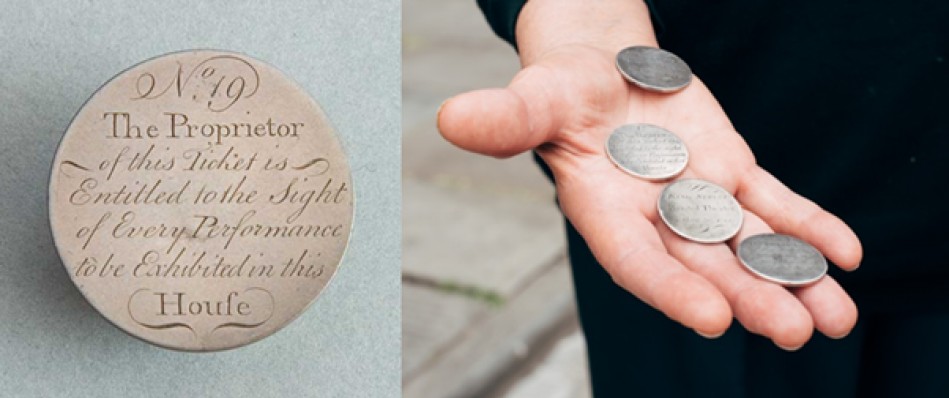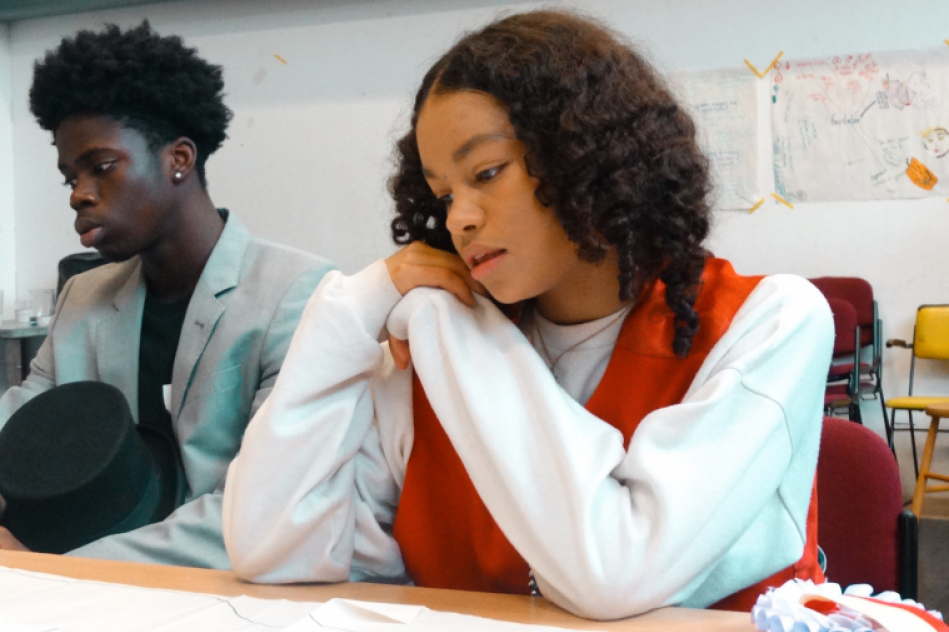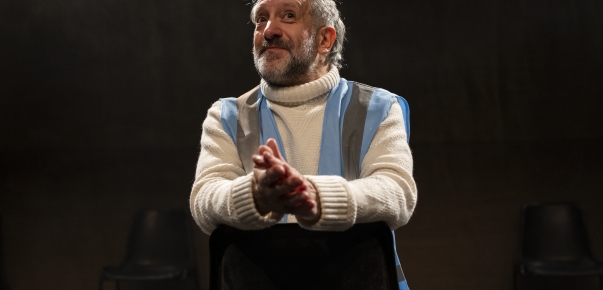the other side of the coin
3 Nov 2023
You may have read in the news this week that one of our original Silver Tickets - a token given to each of the theatre’s 50 proprietors that entitled them to ‘…the sight of Every Performance to be exhibited in this House’ - went up for auction. We were approached before the auction to comment on whether the ticket is still valid today. It is.
Why do we honour this right today? I think the short answer is because nobody has ever explicitly decided not to. It is very much part of this Theatre’s origin story, and an interesting thread that runs right through our 257 years.
The enduring legacy of the Silver Tickets, and their corresponding proprietors, continues to centre the voices of the those who came together in 1764 and decided they simply had to have a theatre worthy of Bristol’s status as the leading provincial city in England. But with every proprietor represented by the Silver Tickets, there are countless names, faces and stories that have been erased. Much of the money raised to buy and maintain the theatre in the 18th and 19th centuries came from Bristol’s slave economy. While our proprietors are acknowledged through the legacy of the tickets, we are far more indebted to those whose stories that have been erased – and our acknowledgment must be more than tokenistic.

Representation and Erasure
Hidden in the creases of paper within our extensive archival collections are the stories of those erased by dominant narratives– such as our proprietor origin story that until recently, we haven’tproperly begun to deconstruct. Every programming decision, casting decision, script commission, playbill copy, costume design oraudience correspondence letter holds a plethora of untold stories that we are now focusing on.
Since 2018, we’ve been auditing our collections to get a more nuanced, clearer picture of the role our Theatre, and eighteenth-century theatrein general, has played in the skewed representation or outright erasure of cultures and communities around the world.

Why are we doing this?
The continuous telling and re-telling of history is fundamental to our sense of identity, and to making change. We want the way that we talk about our past to reflect our core values and decisions today. What we tell and how we tell it will reflect the time we are living in, the change we are making, and where (or what?) we aspire to be – just like we do with our shows.
Our winter show this year is Arabian Nights, written by Sonali Bhattacharyya and told from a feminist perspective. You may not have a Silver Ticket, but your entry to this show is no less of a powerful connection to our past. We have programmed stories from the Arabian Nights continuously over the last 257 years. This is the perfect opportunity to do a deep dive into one play, over time, and ask ourselves: what has been erased and why? What are the messages and stories we want to tell now? Where do we need to go?

Arabian Nights
Working with a group of young people we are going to be interrogating playbills, photographs, casting decisions, scripts, marketing materials and much more to uncover the hidden narratives within this play that is based on a set of world-famous stories. No performance will be exempt from scrutiny, (not even the Arabian Nights that is currently in rehearsals …).
This project forms part of the National Lottery Heritage Funded project Unscripted: A performative history of Bristol, Bristolians and Bristol Theatre. We have been collaborating with communities in Bristol to meet the ongoing need to interpret the past, and to share our understanding of it. With a range of theatrical tools and in collaboration with communities and artists, we are exploring historical stories from across the city and their connections to the theatre.
This is not only an opportunity to uncover stories from the past, but to challenge the way in which history is told, documented, owned and displayed. Together, we can explore methods and perspectives on Bristol and its history, something we and our partners can build on, creating a legacy of collaborative, communal Heritage practice.


